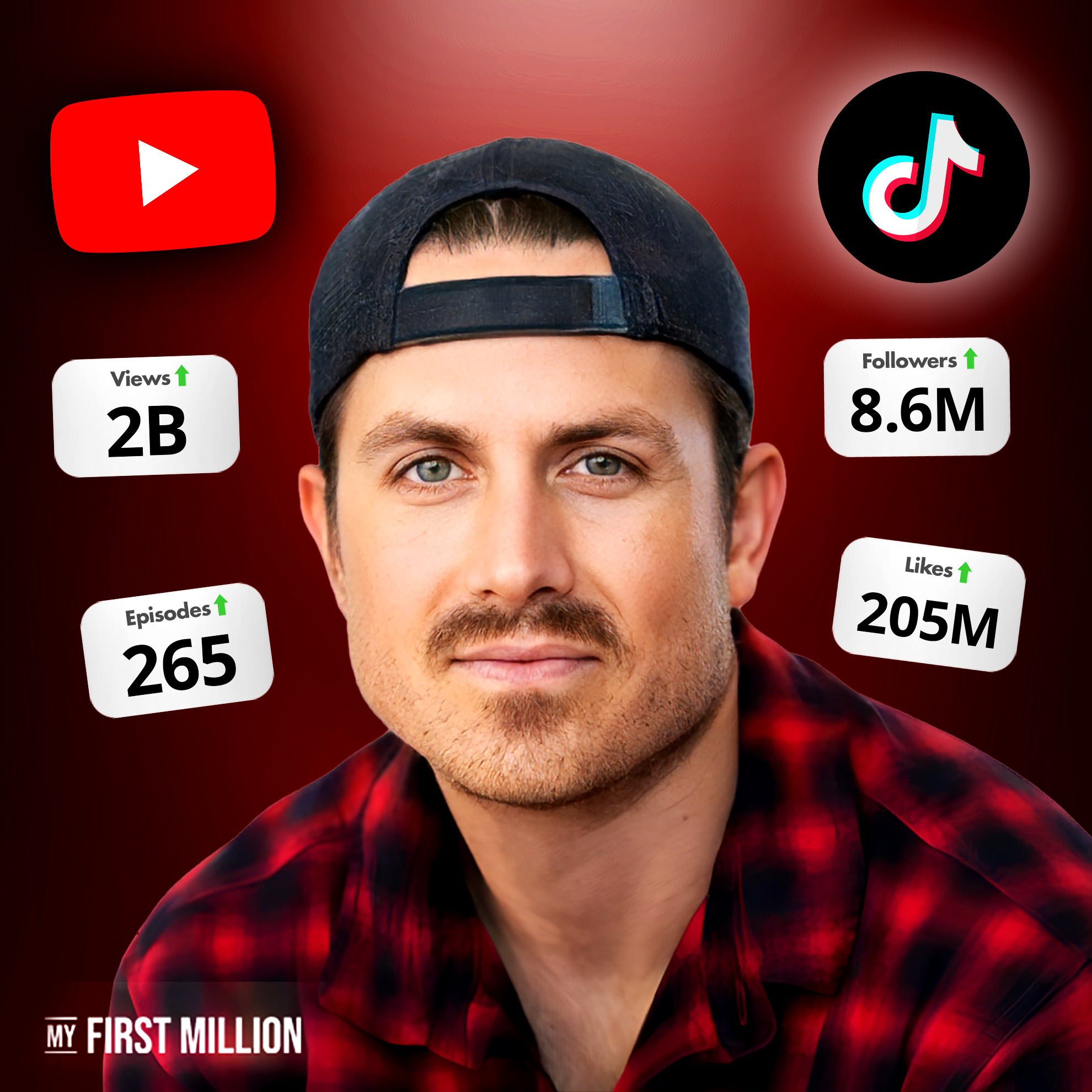Episode 640: Shaan Puri ( https://x.com/ShaanVP )sits down with Mike Posner ( https://x.com/MikePosner ) about his insane hustle, fame, loss and reinvention. — ...
Episode 640: Sam Parr ( https://x.com/theSamParr ) and Shaan Puri ( https://x.com/ShaanVP ) talk about setting one priority–one sprint–to turn your entire year ...
Episode 639: Sam Parr ( https://x.com/theSamParr ) and Shaan Puri ( https://x.com/ShaanVP ) talk to Peter Rahal ( https://x.com/peterrahal ) about starting ...
Episode 638: Sam Parr ( https://x.com/theSamParr ) and Shaan Puri ( https://x.com/ShaanVP ) talk to 14-year-old founder Isaac Katayev ( ...
Episode 637: Sam Parr ( https://x.com/theSamParr ) and Shaan Puri ( https://x.com/ShaanVP ) talk about the conspiracy theory behind Bitcoin’s biggest mystery. ...
Episode 636: Sam Parr ( https://x.com/theSamParr ) and Shaan Puri ( https://x.com/ShaanVP ) talk about the rise and fall of Mike Lynch aka The British Bill ...
Episode 635: Sam Parr ( https://x.com/theSamParr ) and Shaan Puri ( https://x.com/ShaanVP ) talk to Elad Gil ( https://x.com/eladgil ) about the three things ...
Episode 635: Sam Parr ( https://x.com/theSamParr ) and Shaan Puri ( https://x.com/ShaanVP ) talk about the things Shaan learned while at Re-convene in Los ...
Episode 634: Sam Parr ( https://x.com/theSamParr ) and Shaan Puri ( https://x.com/ShaanVP ) talk about Shoji Morimoto, the Japanese guy who’s making $80k/yr ...
Episode 633: Sam Parr ( https://x.com/theSamParr ) talks to Steph Smith ( https://x.com/stephsmithio ) about the mega trend called the Silver Tsunami. — Show ...
Episode 632: Sam Parr ( https://x.com/theSamParr ) and Shaan Puri ( https://x.com/ShaanVP ) talk to John Allen ( https://x.com/MrBallen ) and Nick Witters ( ...
Get our episode with MrBallen before anyone else: https://clickhubspot.com/mbe Episode 631: Sam Parr ( https://x.com/theSamParr ) and Shaan Puri ( ...
Get next week’s episode early, watch it right now: https://clickhubspot.com/mbe Episode 630: Sam Parr ( https://x.com/theSamParr ) talks to Anne Mahlum ( ...
Episode 629: Sam Parr ( https://x.com/theSamParr ) and Shaan Puri ( https://x.com/ShaanVP ) bring you the third installment of Sara’s List. A path to wealth ...
Episode 628: Sam Parr ( https://x.com/theSamParr ) and Shaan Puri ( https://x.com/ShaanVP ) break down the business behind the sports bar Cosm and the massive ...
Episode 627: Sam Parr ( https://x.com/theSamParr ) and Shaan Puri ( https://x.com/ShaanVP ) talk to the socially rich, “Friends Billionaire”, Nick Gray ( ...
Episode 626: Shaan Puri ( https://x.com/ShaanVP ) talks to Guy Spier ( https://x.com/GSpier ) about everything he’s learned from studying the greatest value ...
Episode 625: Sam Parr ( https://x.com/theSamParr ) and Shaan Puri ( https://x.com/ShaanVP ) are back with George Mack ( https://x.com/george__mack) to talk ...
Episode 624: Sam Parr ( https://x.com/theSamParr ) and Shaan Puri ( https://x.com/ShaanVP ) brainstorm cash-printing business ideas with George Mack ( ...
Episode 623: Sam Parr ( https://x.com/theSamParr ) and Shaan Puri ( https://x.com/ShaanVP ) talk about the underrated philanthropy style of Peter Thiel, Elon ...
- « Previous Page
- 1
- …
- 7
- 8
- 9
- 10
- 11
- …
- 43
- Next Page »


